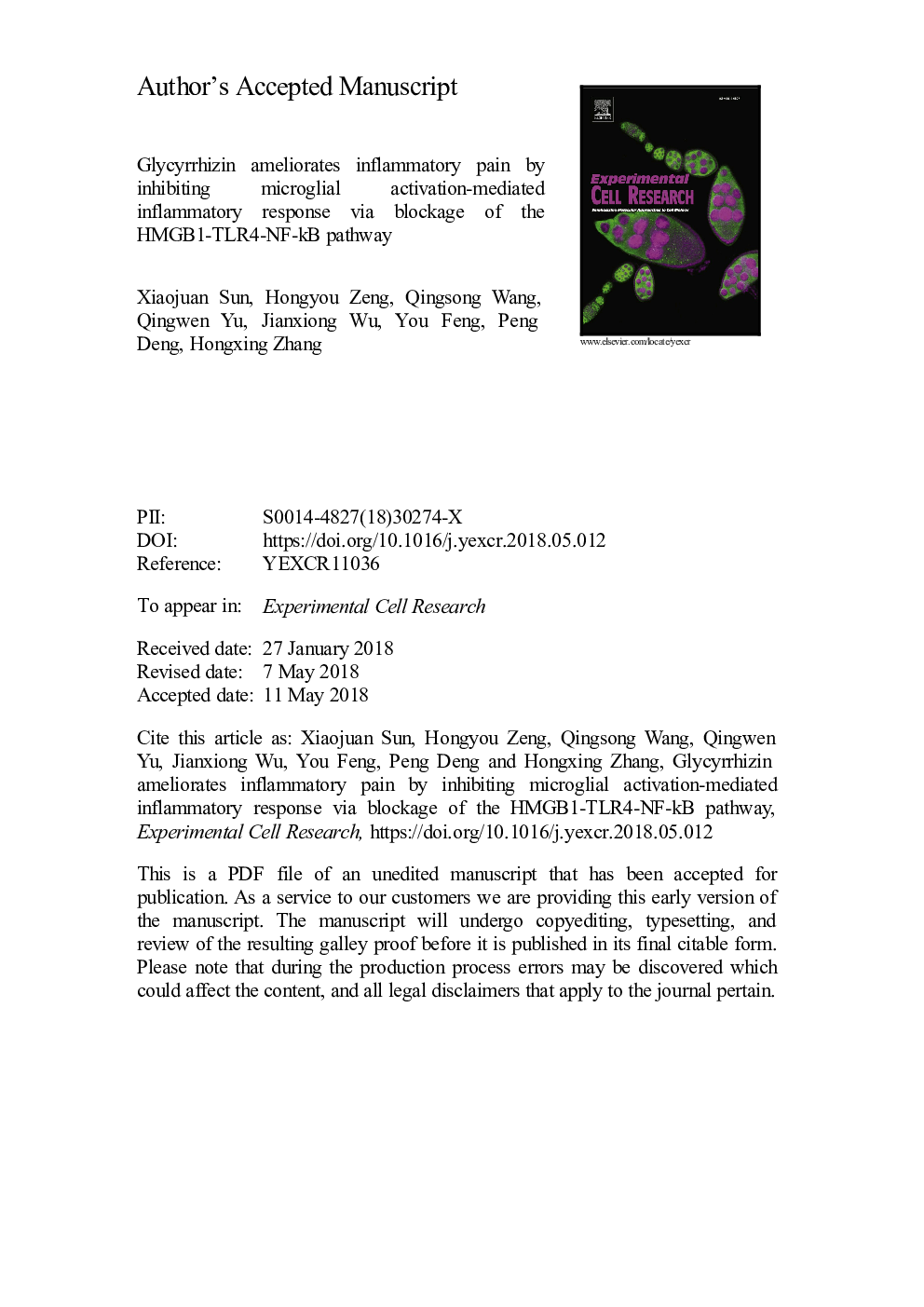| Article ID | Journal | Published Year | Pages | File Type |
|---|---|---|---|---|
| 8450401 | Experimental Cell Research | 2018 | 30 Pages |
Abstract
Chronic inflammatory pain is a severe clinical problem that greatly affects patients' quality of life and causes huge economic burden. Microglia-mediated neuroinflammation exerts critical roles in the pathogenic progression of inflammatory pain. Recent evidence corroborates the anti-inflammatory and neuroprotective efficacy of glycyrrhizin; however, its function in inflammatory pain remains poorly elucidated. In the present study, glycyrrhizin suppressed LPS-induced activation of microglial cell BV2 by inhibiting NO production and expression of microglial marker IBA-1. Intriguingly, LPS-induced high expression and generation of inflammatory cytokines (i.e., IL-6, TNF-α and IL-1β) was notably reversed by glycyrrhizin pre-treatment. Mechanistic analysis confirmed that high expression of high-mobility group box 1 (HMGB1) in LPS-activated microglia was inhibited following glycyrrhizin. More importantly, restoring HMGB1 expression by recombinant adenovirus vector of Ad-HMGB1 counteracted glycyrrhizin-restrained inflammatory response in microglia upon LPS stimulation. Furthermore, glycyrrhizin dampened the activation of subsequent TLR4-NF-κB pathway in LPS-stimulated microglia, which was abrogated by HMGB1 elevation. Furthermore, blocking this pathway by si-TLR4 transfection reversed the effects of HMGB1 overexpression on the inhibitor roles of glycyrrhizin in microglia-triggered inflammation. Additionally, glycyrrhizin administration also alleviated CFA-evoked mechanical allodynia and thermal hyperalgesia in inflammatory pain model of mice, concomitant with suppression in inflammatory response and microglial activation. Simultaneously, elevation of HMGB1, TLR4 and p65-NF-κB protein expression induced by CFA injection was also abrogated after glycyrrhizin. Accordingly, this study reveal that glycyrrhizin may act as a promising therapeutic avenue for the treatment of inflammatory pain.
Related Topics
Life Sciences
Biochemistry, Genetics and Molecular Biology
Cancer Research
Authors
Xiaojuan Sun, Hongyou Zeng, Qingsong Wang, Qingwen Yu, Jianxiong Wu, You Feng, Peng Deng, Hongxing Zhang,
